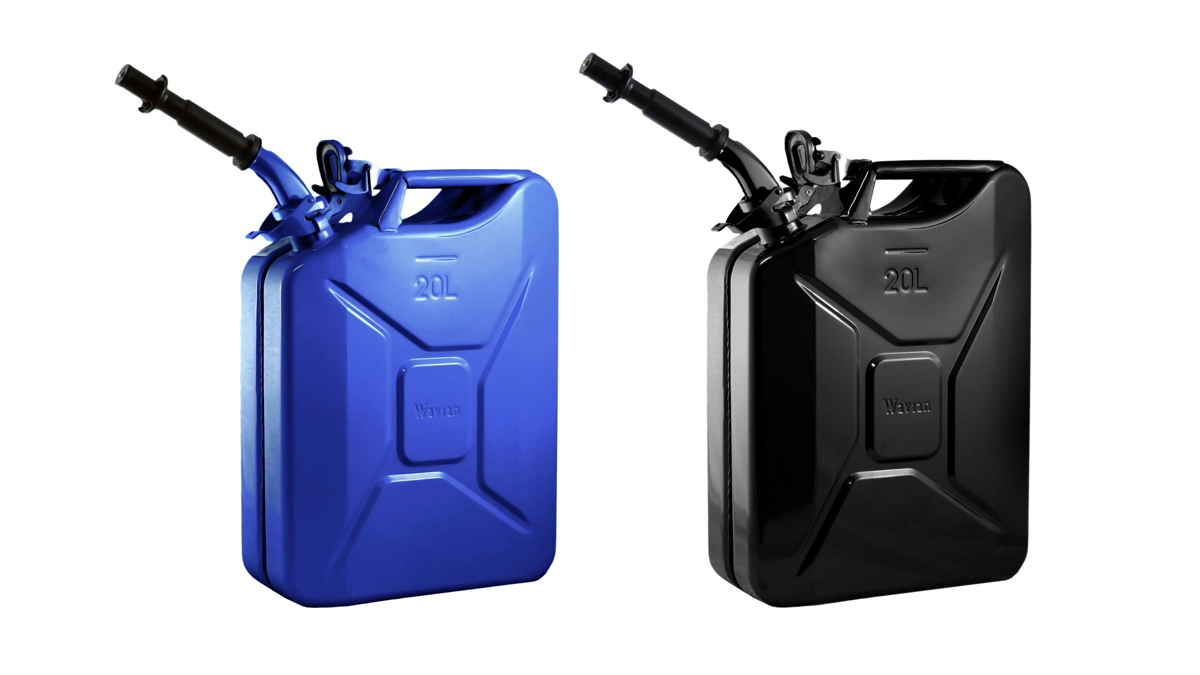For most people, there’s really only one place where they store gasoline or diesel fuel: Inside their car’s fuel tank. End of story.
The thing is, there are some situations that call for storing said fuel in places other than the insides of a vehicle. Perhaps a friend has run out of gasoline in the middle of nowhere and asked you to lend a helping hand, or maybe you need to keep some on you to ensure a generator stays running. You might even need fuel to operate certain types of equipment, like lawnmowers. So, what do you do then?
What container can I use to store fuel?
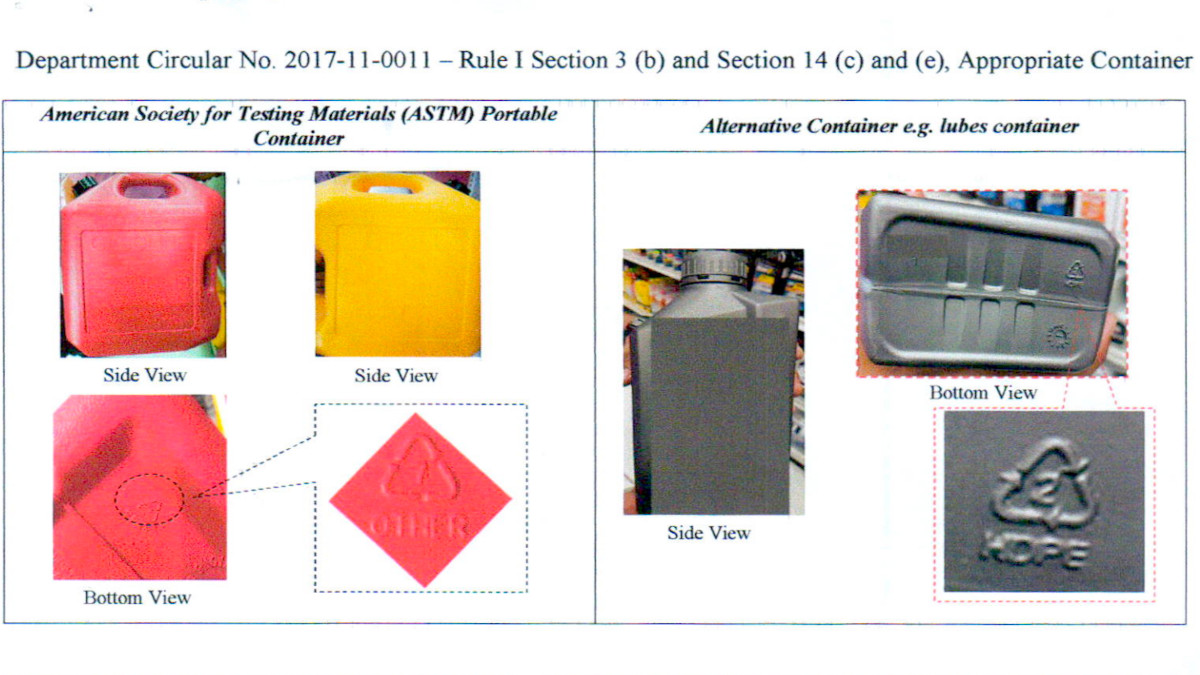
According to Department of Energy (DOE) circular no. DC2017-11-001, only portable containers that adhere to existing international standards of the American Society for Testing Materials (ASTM) are considered “appropriate.” Examples of this are F852-99 and F972-02 portable fuel containers.
Yes, this is very technical stuff—and we reckon a lot of you can’t be bothered to look this up. Thankfully, the DOE has made it simple. Look:
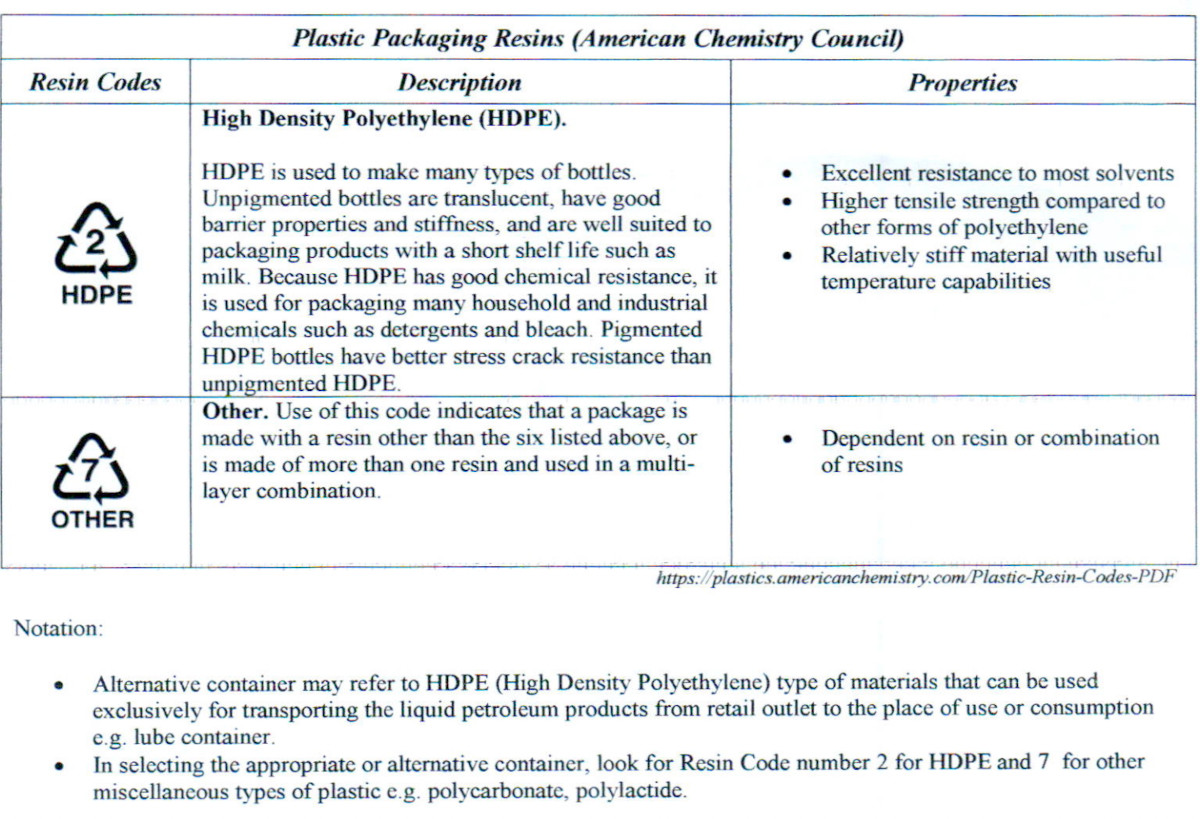
Basically, you want to look at a container’s resin code before filling it with fuel. The DOE says you should use containers made of high-density polyethylene as it is resistant to most solvents.
Containers marked ‘other’ may also be used depending on its resin combination. It’s worth noting that some fuel providers recommend storing fuel in 2.5-, 5- or 25-liter jerry cans for domestic use.
OTHER STORIES YOU MIGHT HAVE MISSED:
Caused a crash for not signaling? In Malaysia, you can go to jail for that
New pedestrian stairs, linear park connected to Binondo-Intramuros Bridge now open
Be sure not to use soda bottles, jugs, or other types of plastic containers to store liquid fuel. The DOE calls the peddling of gasoline and diesel in such containers “bote-bote,” and discourages members of the motoring public from patronizing sellers who practice it.
Remember: Fuel can degrade certain types of plastic. Be sure to only use containers approved by the DOE.
How do I store gasoline safely?
- Keep fuel containers sealed properly and tightly. Ensure that containers do not have any leaks.
- Be sure to store your gasoline and diesel containers in well-ventilated places. Store them outdoors (but not exposed to the sun or elements) and away from your living areas if possible.
- Fuel should be stored at room temperature at all times.
- Keep stored fuel away from potential sources of heat and fire (heaters, fireplaces, stoves, candles, running vehicles, etc.). The American Petroleum Institute recommends keeping fuel at least 50 feet away from these objects.
- For obvious reasons, do not smoke near your stored fuel. The same goes for cooking or anything that involves open flames or heat in general.
- Do not allow your fuel to mix.
- Handle stored fuel with care when transporting to avoid spills, puncturing your containers.
- Do not keep large quantities of liquid fuel stored in your home.
- Keep stored fuel away from children and animals.
- Be sure to quickly deal with spills.
- Use gasoline and diesel only for their intended purpose. Do not use these liquid fuels to power lamps or start fires.
- Check on stored fuel regularly.
- Have fire extinguishers ready.
How long can I store fuel?
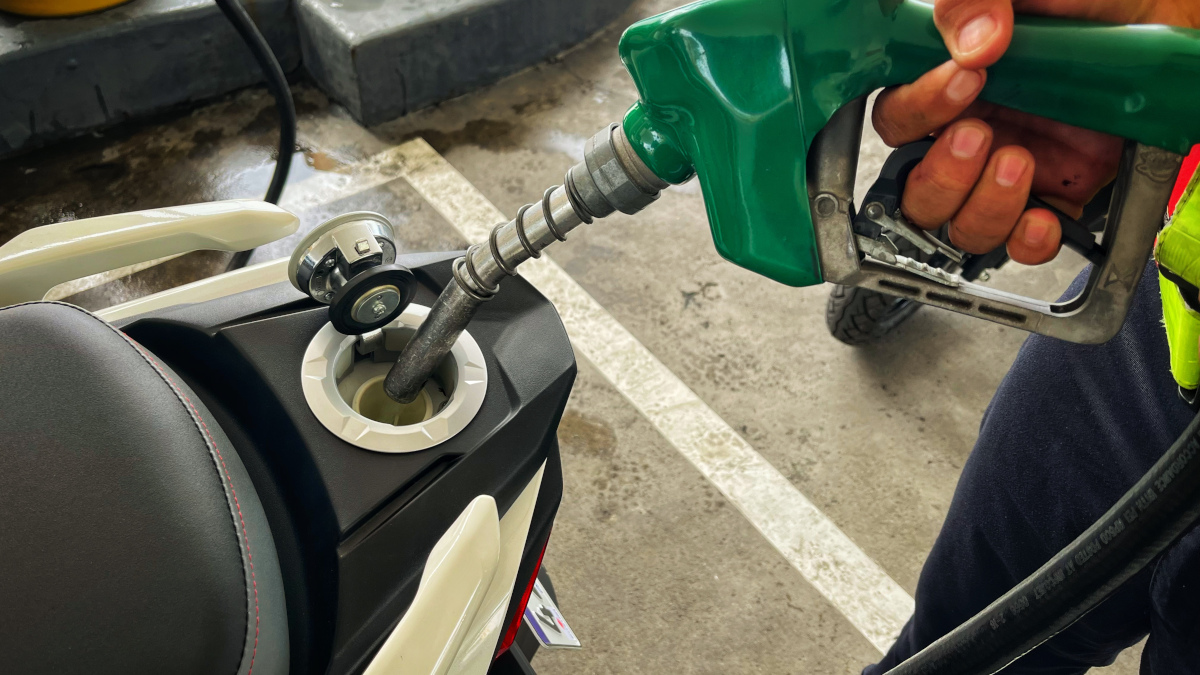
According to BP, the storage life of gasoline when stored under shelter in a sealed container is one year. If the seal is broken, gasoline can last up to six months provided it is kept at a temperature of 20 degrees Celsius. Its shelf life comes down to just three months at 20 degrees Celsius. Also, note that fuel can evaporate.
Diesel is a little different. BP says that since diesel is not considered a volatile fuel, it is not prone to evaporation like gasoline. The main issue is that sediments may form, and that moisture and condensation can degrade the fuel in containers that have been opened. The company says diesel will last for about a year or longer.
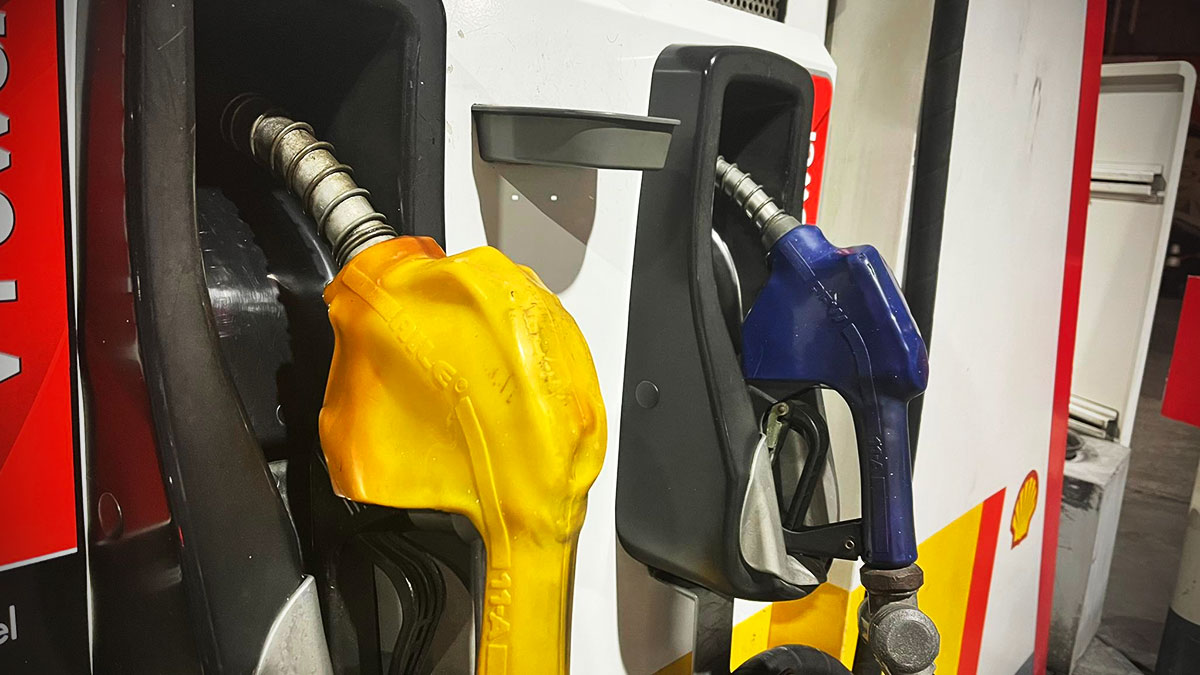
Well, there you have it. Storing gasoline or diesel is safe provided you know what you’re doing and take the necessary precautions. Do you think you’ll ever need to keep liquid fuel products in your home? Let us know why or why not in the comments section.

